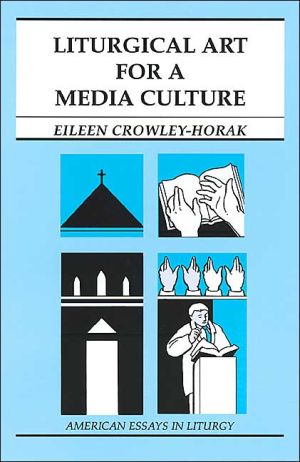

 |

|

The average rating for Liturgical Art for a Media Culture based on 2 reviews is 4 stars.
Review # 1 was written on 2017-03-31 00:00:00 Hipolito Calderon Hipolito CalderonSimilar to Prof McCall's primer on analytic theology, this book is more than a survey on recent Trinitarian options. It is a model on how to think clearly. He begins with some basic forays, then examines several live options today, and ends with some tentative suggestions. Behind the theologians there are there deeper substrata: Latin Trinitarianism (LT), Social Trinitarianism (ST), and Relative Trinitarianism (RT). LT comes out the worse for wear. His section on LT takes Brian Leftow's essays to task, showing how it is a dialectic between ST and modalism. Leftow openly says there are "personal parts" in God (Leftow, "A Latin Trinity," 308, quoted in McCall 114). Indeed, "they add up to the life of the one God" ("Modes without Modalism," 375). This is hard to square with any account of divine simplicity, but there are bigger problems. If Leftow is representative of LT, then LT is guilty of positing a Quaternity. So far we have (3) there are personal parts that add up to the one God (4) "There is either a fourth instance of divinity, (4a) or there is not" (McCall 115). If (4) is true, it is either a divine person or it is not a divine person. Orthodoxy rules out its being a divine person. Logically, that wouldn't hold, either. A person usually isn't part of another person (except in the womb, I suppose). As McCall notes, "When three persons add up to another [something], it usually isn't a person." McCall then examines Robert Jenson's claim that God is "whoever raised Jesus from the dead." That's not a bad definition, but Jenson can't avoid positing a temporal god. Jenson's main argument is that God is "identified by and with the particular plotted sequence of events that make the narrative of Israel and her Christ" (Jenson, ST1, p. 60, quoted in Mccall 131). Said another way: God is constituted by these historical acts. This leads to a number of big problems: (5) Theory of Worldbound Individuals (TWI): "For any object x and relational property P, if has P, then for any object y, if there is a world in which y lacks P, then y is distinct from P" (Plantinga, quoted in McCall 143). (5a) The grim conclusion, if Jenson holds to both his Identity Thesis and TWI, then God could not exist apart from the temporal events in this world. (5*) for TWI all divine properties are essential properties. (6) The Son has an essential property (being incarnate) that the Father does not have. (6a) The Son's economic property of being subordinate to the Father is now an essential property! Is Jenson's God temporal? It looks like it. Let's take two theses which Jenson would hold: the Indiscernability of Indenticals and TWI. God's identity for Jenson is linked to key temporal actions in Israel's life (Exodus, etc; "God can have no identity except as he meets the temporal end toward which creatures live," Jenson, ST1, 65). This leads to the following: (7) God has different properties at t1 (e.g., call of Abraham) than he does at t2 (Exodus). Thus, (7*) God is not identical to himself. (7') God changes through time. So much for Jenson. McCall also has several fine chapters on the Evangelical Functional Subordination debate and John Zizioulas. They are extremely important but too detailed to discuss here. This is an outstanding book that exercises the mind and clears away false models of the Trinity. |
Review # 2 was written on 2019-04-26 00:00:00 Jay Margolis Jay MargolisLast fall, I read a number of philosophical-theological books on the Trinity. This book was one of them. McCall is a philosophically-minded systematic theologian. He writes clearly and has a good grasp of the issues. The first part of the book covered recent discussions of the Trinity in philosophical theology. Two basic views of the Trinity are often discussed by philosophers of religion. There is Social Trinitarianism, which places greater emphasis on the Trinity's "threeness." And there is Anti-Social Trinitarianism, sometimes called Latin Trinitarianism, which places greater emphasis on the Trinity's "oneness." Like all orthodox Christians, McCall states that we must avoid tritheism (or polytheism), modalism, and the ontological subordination of the Son. I think I appreciated this part of the book most, because it was a fairly clear summary of recent discussions of the Trinity. The second part of the book examines some interesting, unorthodox, and bizarre Trinitarian doctrine from theologians such as Robert Jenson, Jurgen Moltmann, and John Zizioulas, as well as those who advocate for the eternal functional subordination of the Son. Those who want to learn more about Trinitarian theology than what is presented in standard systematic theologies might want to read this book. |
CAN'T FIND WHAT YOU'RE LOOKING FOR? CLICK HERE!!!